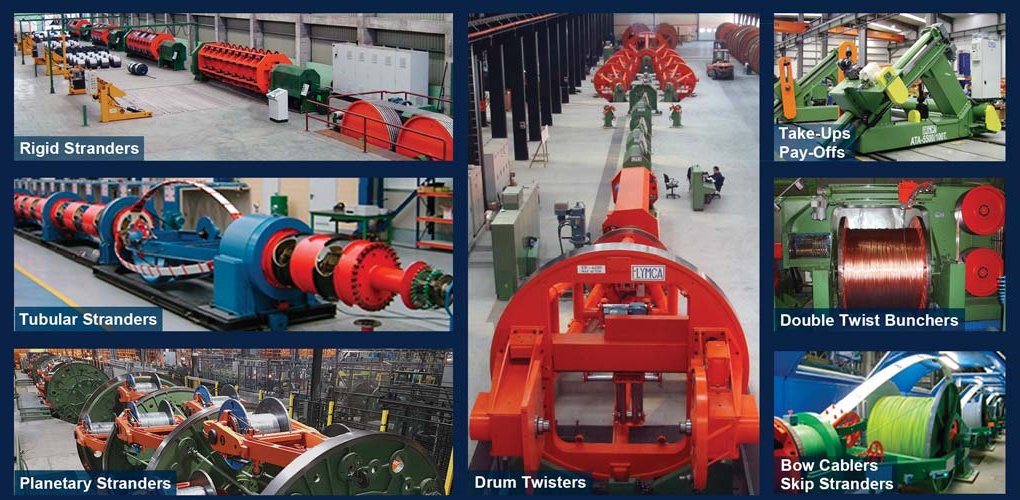Published on Sep 30, 2017 in Wire Journal International
Industry, fortunately, is more than just equipment and orders, and the quality of staff has been called by some industry veterans as the biggest differentiator. Below, Peter Carino, the principal of Wire Resources, Inc., who has 35 years of experience in wire and cable recruiting, shares his thoughts.
WJI: How hard is it for you to find young professionals with two or three years of wire and cable experience?
Carino: Non-technically degreed, young professionals are scarce in the cable industry. Degreed engineers with two or three years of wire and cable experience are like hen’s teeth. It’s common for a cable manufacturer to have not one technically degreed engineer with a couple of years of experience. I don’t believe it’s any more difficult to hire young professionals today, but it’s undeniable that today’s young people move from job to job at a greater rate than a generation ago. They are more often renters of housing, not buyers, and marry at a later age and are less tied down.
WJI: Are companies more willing to hire someone just out of college? Do internship programs matter?
Carino: Larger cable producers are more likely to hire young grads. You see it occasionally at smaller cable firms, but those companies may not have the luxury of investing the time and training needed to get those young employ- ees to a point where they are contributing to the bottom line. If a recent grad has an internship at a cable company, it would certainly be an attraction. The experience-and more importantly, the interest in a possible career in the cable industry-is a plus.
WJI: In real estate, the mantra is “Location, location, location.” Does that apply to wire and cable too?
Carino: To some extent. If a cable plant is in a very rural location, it will appeal to a smaller pool of potential candidates. If it’s in an area with all of the amenities it will appeal to a larger group. However, if the cost of liv- ing is too high, the candidate pool again becomes small. A person getting started or an employee with a family both want to live in an area that offers the lifestyle they seek, with proximity to what’s important to them, e.g., schools, social life and facilities. The dynamic of work versus personal life is more intertwined than ever.
WJI: When companies come to you to seek a candidate, can their requests be unrealistic?
Carino: Occasionally, and if so I’ll tell them why, giving specific examples. Requests can be unrealistic for a variety of reasons. Typically, it’s base compensation, incentive, relocation assistance or an unusual skill set they seek. However, there are other factors, like historical company turn over, industry reputation and location that potential candidates, will take into consideration when determining what the company has to “offer.”
 WJI: The wire and cable industry tends to be overshadowed by other glitzier fields, yet you have said more than once that it often has more potential: what do you mean by that?
WJI: The wire and cable industry tends to be overshadowed by other glitzier fields, yet you have said more than once that it often has more potential: what do you mean by that?
Carino: When I speak with a young person working in the cable business, I encourage them not to leave. I tell them that there is more potential and opportunity to grow in their field as there is less competition from similar age peers. The cable business was run “lean” long before it became fashionable and therefore the young hire, who is one of few, will be exposed to more things and at a faster rate. A deeper, more well-rounded experi- ence in a shorter period of time is probable. One can leverage that experience for accelerated career growth.
WJI: Is it harder for a company to hire a young staffer?
Carino: I believe it’s harder to hire the young grad, especially if it’s an engineer. A career in wire and cable manufacturing is not on the radar of most new grads. Secondly, you have to pay market value. Other industries tend to pay equal or greater wages than the cable industry. You compete with other industries for the educational background, perceived potential and the candidate’s “soft skills” you feel they possess.
WJI: When people come to you looking for a new job, is the goal inevitably to get a bigger paycheck?
Carino: Current compensation typically is not the pri- mary motivator when a gainfully employed person calls me looking for a new job. Obviously, money is important but that’s not the first thing I usually hear. The company direction and how that message is conveyed to its employees is a big factor. Does the company operate with a short term view or does it have a reputation and strategy for long-term growth? Maybe the path for advancement is no longer available for the plant manager who wants that vice president of manufacturing position, but his boss has been with the company 15 years and “isn’t going any- where.” A caustic relationship with the boss, regardless of who is at fault, is always a motivator for job change.
WJI: What can a company do to maintain key staffers?
Carino: No one gets a more honest exit interview than someone in my position. Employees don’t want to burn a bridge when they leave a company. When HR asks them what prompted their move, they will give a generic, fairly benign response: better opportunity, more money, closer to home. Those reasons are probably true but typically there is an underlying factor that won’t be stated. Employees want to feel like they are truly a part of the team. They want a clear message and strategy even though they understand that priorities can and will change. They want their input recognized and at least considered. Some companies openly display goals and milestones that detail company performance. Employees like to know where they stand, and more importantly, how their actions affect those goals, and ultimately, their total compensation. Knowing your employees on a personal level can be very helpful. When a senior executive puts in the time to talk and listen to employees from the plant floor on up, it usually bodes well for company morale. I have walked through dozens of wire and cable plants with the plant manager or a senior executive. You can usually tell what type of relationship exists between the plant floor and management by listening and seeing their casual interactions.
WJI: What was not asked above that you feel is worth noting?
Carino: There are certain cable manufacturers that have a history of low turnover, which typically equates to employees taking greater ownership of their responsibilities and going the extra mile more often. You want your employees to work like they own the company. That’s the reason ESOPs have very little turnover. An ESOP employee is likely to have an entrepreneur’s work ethic and vision, which is tough for the competition to beat. There is a small ESOP cable manufacturer that has never had an unprofitable year or an employee leave their company to join another firm. Every past employee either retired from the company or passed away. That performance and level of commitment is tough to dispute!
Peter Carino, Wire Resources, Inc., can be contacted at tel. 203-622-3000, pcarino@wireresources.com or at linkedin.com/in/petercarino1


